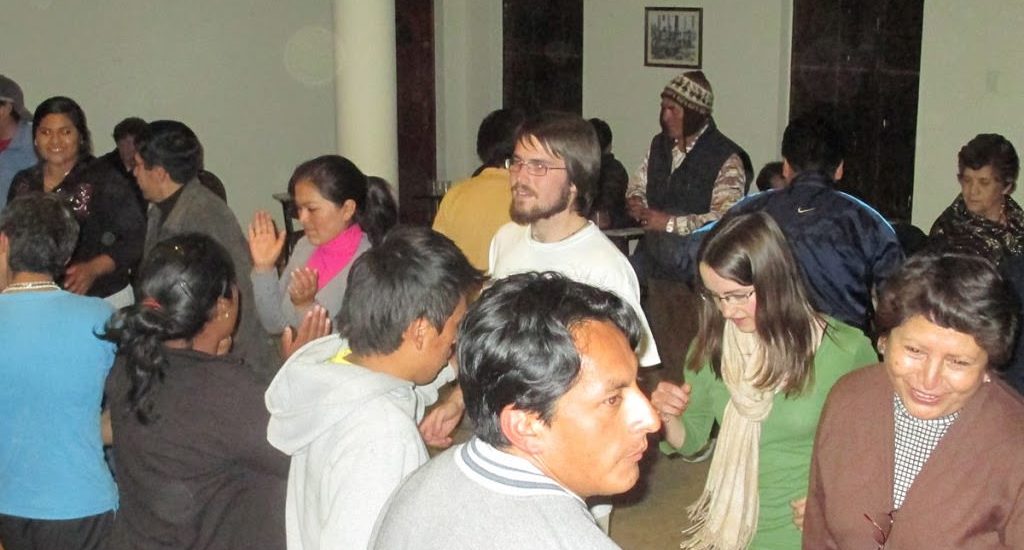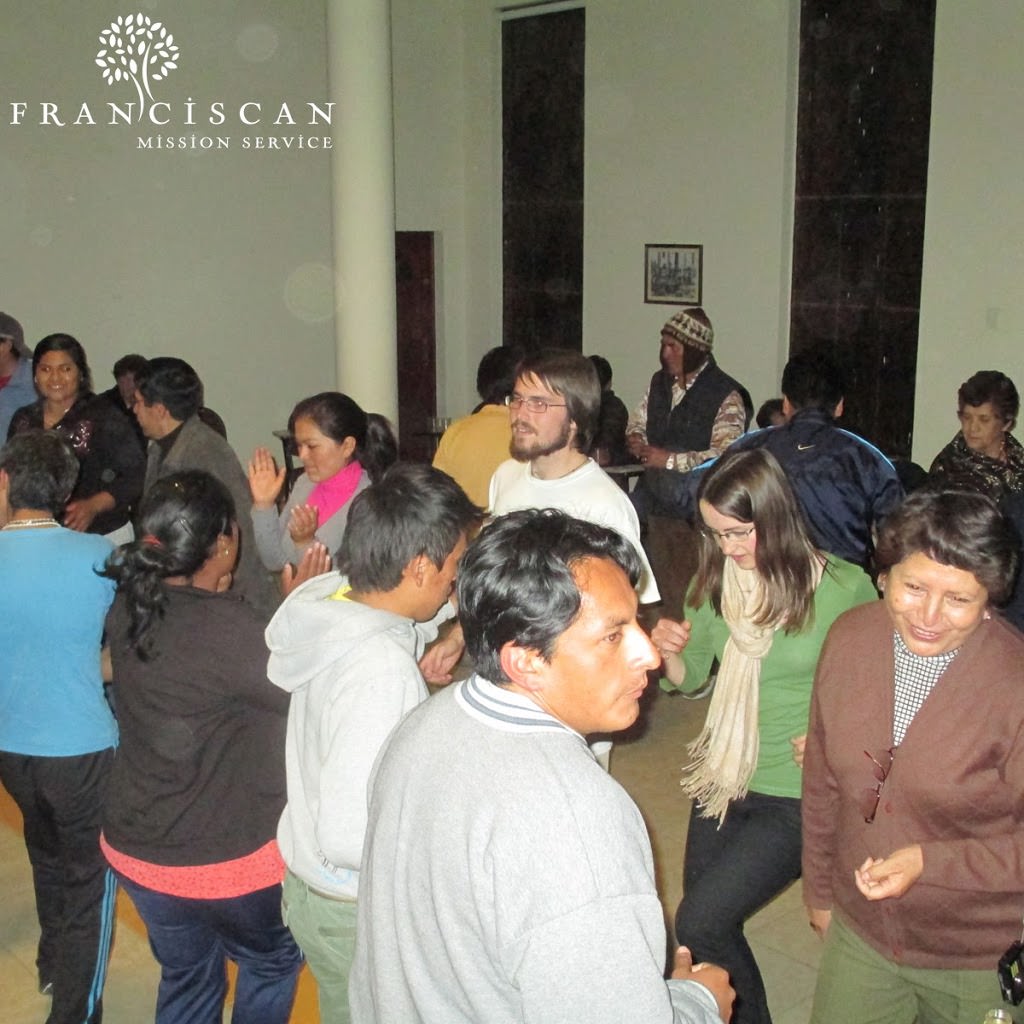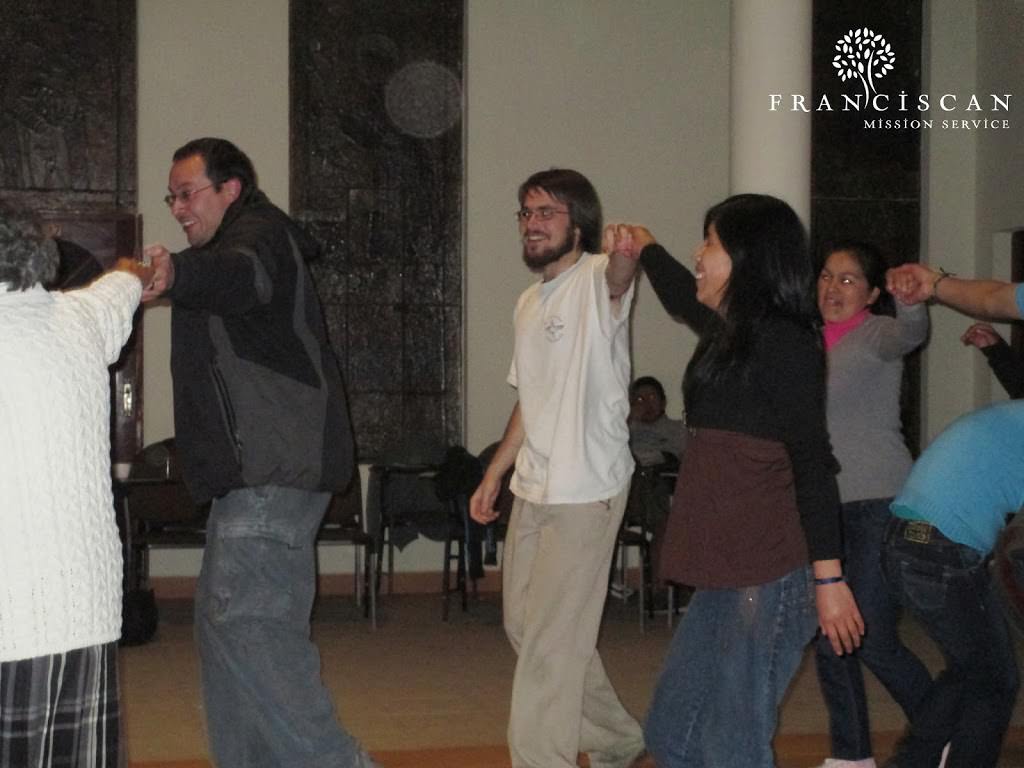Mission Monday: The Value of Relationships

First-year lay missioner Jeff Sved sends an update from his time in Bolivia:
At the recent Asamblea Nacional del Movimiento Franciscano “Justicia y Paz” Bolivia, I was blessed with the opportunity to enjoy la fraternidad (fraternity) within the Franciscan family throughout Bolivia.
 |
| Jeff (center) dancing at the Asemblea Nacional del Movmiento Francisco |
Forty representatives came together from Cochabamba, La Paz, Oruro, Tarija, Potosí, and Santa Cruz, and spent three days joining in prayer, sharing meals and stories, and planning the upcoming year.
 |
| Jeff dancing at the Bolivian-wide assembly of Franciscan Justice and Peace organizations |
The relationships that began to form highlighted for me what it means to be a missioner. However, relationships are not only essential to mission life; they are a central part of what it means to be human.
As Christians, we believe in a relational God who is Himself in a Trinitarian community of Father-Son-Holy Spirit, and in a Gospel centered on the relation between God and humanity especially in the life of Jesus. Relationship is a cornerstone of our faith.
Which is why, while participating in a great example of community, my mind was back in the US prison system and the communities there I had worked with last year.
There are many differences between the prison systems in the U.S. and Bolivia. And, while visiting with people in the prisons in Cochabamba, I try not to dwell much on these differences because that often leads to a value judgment and labeling of one as better and the other as worse. But on the topic of relationships and community it is an unavoidable comparison.
While reflecting on the value of fraternity, I finally realized that “solitary” or “iso” or “the hole” doesn’t exist in the prisons here in Cochabamba. Since solitary confinement is never discussed, it had yet to cross my mind that it wasn’t used here.
Though the living conditions in Bolivian prisons far from affirm the dignity of the human person, the lack of isolation as a form of punishment does affirm the human need for interaction – which makes a huge difference when focusing on rehabilitation.
This difference along with the structure of elections for inmate delegates who work within the prison system allows for much stronger communities to form. Relationships are fostered within the prisons in a way that provides encouragement during the struggles of incarceration and rehabilitation.
Within these communities, inmates (and volunteers) find support similar to that which we encountered at the national assembly.
Tagged in:
